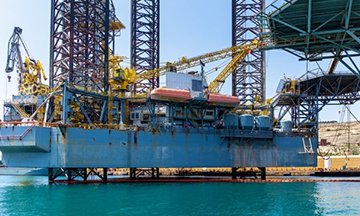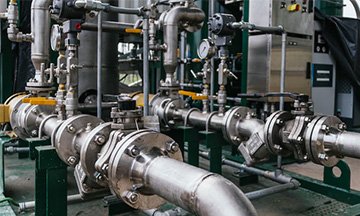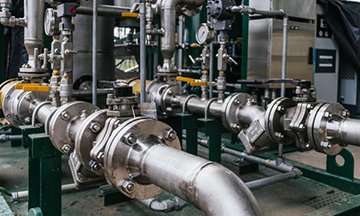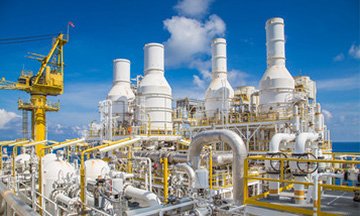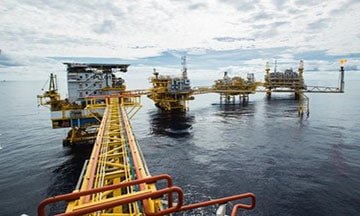Global Petroleum Business Management, Trading and Marketing
| Date | Venue | Duration | Fees | |
|---|---|---|---|---|
| 22 Apr - 26 Apr, 2024 | Dubai | 5 Days | $4750 | Register |
| 13 May - 17 May, 2024 | Dubai | 5 Days | $4750 | Register |
| 10 Jun - 12 Jun, 2024 | Johannesburg | 3 Days | $4100 | Register |
| 10 Jun - 14 Jun, 2024 | Dubai | 5 Days | $4750 | Register |
| 22 Jul - 26 Jul, 2024 | Dubai | 5 Days | $4750 | Register |
| 05 Aug - 09 Aug, 2024 | Dubai | 5 Days | $4750 | Register |
| 09 Sep - 20 Sep, 2024 | Kampala | 10 Days | $9150 | Register |
| 30 Sep - 04 Oct, 2024 | Dubai | 5 Days | $4750 | Register |
| 07 Oct - 11 Oct, 2024 | Dubai | 5 Days | $4750 | Register |
| 04 Nov - 08 Nov, 2024 | Dubai | 5 Days | $4750 | Register |
| 09 Dec - 20 Dec, 2024 | Dubai | 10 Days | $8775 | Register |
Course Overview
How does the petroleum industry work?
Petroleum is considered the jugular vein of the industrial sector. Petroleum is used for uncountable products. Petroleum is a thriving industry that has been running effectively for more than a century. This industry requires expertise in operating and running the business, trading petroleum commodities, and marketing the products. The petroleum industry has a high growth rate with huge technological advancement which requires up-to-date knowledge and skills creating a huge demand for trained and skilled staff that can adapt to the evolving technological advancement and changing market demands.
What is the difference between trading and marketing?
The Zoe training course will provide you with the most advanced knowledge and expertise to master the science of global petroleum business management trading and marketing. The training with practical case studies and the latest theoretical information will empower you to take responsible and senior positions at a government and multinational organisation with huge potential for growth within the organisations. It will enhance prospects for better opportunities outside your current organisation as well.
Course Objectives
The key objective of this program is to equip professionals with —
● Broad insight of oil refining, transportation, business, and trading
● Quality control and blending of oil
● Trade sufficient valuation of oil
● Vessels, terminals, and pipelines chartering
● Technical, legal, safety, business, and commercial evaluation of oil
● effective use of simulation tools and algorithms used in the field.
● Fundamentals of oil business management
● Future of oil market
● Pricing and price management controls
● Economic barrel calculations
Training Methodology
The training courses at Zoe Talent Solutions are updated according to the academic and professional background of the audience for each batch respectively. The contents of the course are reviewed thoroughly before each session. On top of that, there are certain updates to the course in the pipeline to keep it up to date. A professional from the relevant field with years of experience in practical knowledge conducts the training session using detailed audio and video presentations to ease the learning process. the trainees are continuously engaged in group activities and individual and group projects to give them on hand knowledge. Furthermore, case studies and real-life scenarios are given to trainees to improve their analytical abilities and practical knowledge.
Organisational Benefits
By professionals undertaking this course, their respective organisations will derive the following benefits:
● Acquiring professionals with an understanding of how petroleum businesses operate effectively
●Proper knowledge of International Law and National law to operate abroad and on international territory
● Knowledge of current ongoing trade and business in the petroleum sector helps in shaping company policy
● Providing skills to organisations that wish to expand to the petroleum sector
● Skill enhancement of marketing team to increase sales and revenues
● Petrol trading market expertise to provide better investment opportunities in petroleum commodities
● Application and implementation of advanced concepts and market trends to increase efficiency and productivity within the organisation
● Regular training of employees on best practices and advancements in the field of petroleum
Personal Benefits
Professionals who choose to take this Zoe training course will derive the following benefits:
● An in-depth understanding and knowledge of all critical aspects of the petroleum business, trading, and marketing
● Enhanced analytical skills to effectively and accurately process data in resource exploration
● Increased confidence and skillset to train other professionals on best practices and concepts related to petroleum management
● Better ability and understanding to enhance or change processes and systems to increase organisational growth and development
● Increased understanding and knowledge of advanced techniques and concepts related to managing natural resources, enabling one to assume higher responsibilities in the petroleum or oil and gas sector in any organisation, thereby increasing avenues for career growth and progression
● Better understanding and analytical as well as strategic skills to work with different systems and choose appropriate models for exploiting natural resources
● Better risk and threat assessment to avoid any disaster or hazard in operations
● Increased skills and capabilities to actively take part in research, exploration, extraction, and managing natural fields
Who Should Attend?
● Young entrepreneurs who want to flourish their careers in the field of petroleum
● Professionals working in oil and gas industry
● Senior management and administrative staff working in government and private petroleum organisation
● Any other professional with a background in business or entrepreneurship interested in knowing more about the dynamics of the petroleum business
Course Outline
The course covers the following areas important to understanding energy economics:
Module 1: Classification of Resources
● Conventional and unconventional resources
● Defining the discovery state
● The economic viability of resources
● Commerciality of the reserve or field
● Production forecast
Module 2: Production Management of Petroleum
● Economic criteria
● Cash flow evaluation
● Production sharing contracts
● Contract renewals
● Recoverable quantities estimation
Module 3: Cost Management of Production
● Consumed in-operations (fuel)
● Non-hydrocarbon components
● Gas storage costs
● Natural gas re-injection
● Royalty
● Incremental projects
● Hydro-carbon conversion
Module 4: Resource Assessment Methods
● Performance analysis
● Deterministic method
● Geostatistical method
● Probabilistic method
● Integrated methods
● Aggregation method
Module 5: International Oil Trade
● International markets
● International pricing
● International product trade flows and transport
● Market reporting
● Price assessment
● Oil trading jargon
● Physical markets
Module 6: Physical Trading
● Types of contracts
● Main oil markets
● Benchmarks of crude oil
● Role of price reporting agencies
● Petroleum products trading
● Hedging strategies
● Types of contracts
● Provisions of sale and purchase contracts
Module 7: Marketing of Petroleum Oil
● Market dynamics
● Distribution channels
● Customer segmentation
● Analysis of transportation
● Product competition
Module 8: Marketing Strategies
● Incorporating the AIDA model
● Wholesale marketing
● Retail marketing
● PESTEL analysis
● Micro and macroeconomic effects on the petroleum sector
● Marginal utility
Module 9: Global Petroleum Structure
● Oil-producing countries
● Organisation of Oil Producing Countries (OPEC)
● Multinational corporations
● Oil diplomacy
● OAPEC
● Oil industry related to the global economy




